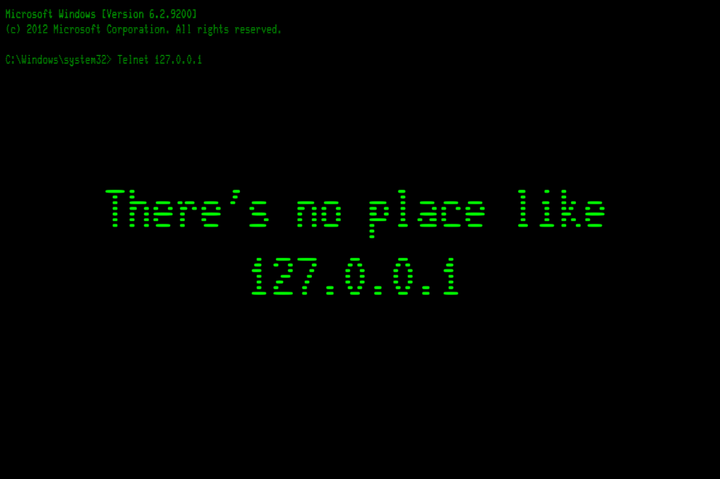Discover the World of Game Development with https// gamemakerblog.net
Game development has emerged as one of the most exciting and dynamic fields in the tech industry. With advances in technology, the accessibility of development tools, and a growing community of enthusiastic developers, creating games has never been more attainable. Whether you’re an aspiring game developer or a seasoned professional looking to refine your skills, https// gamemakerblog.net offers invaluable resources, insights, and inspiration. This comprehensive guide delves into the world of game development, highlighting the resources available on https// gamemakerblog.net, and exploring the various aspects of this fascinating field.
Understanding Game Development
Game development is the process of creating a video game, from conceptualization to release. It involves various stages, including planning, designing, coding, testing, and marketing. The process requires a blend of creativity, technical skills, and project management abilities. Developers must balance artistic vision with practical considerations such as budget, time constraints, and target audience preferences.
The Phases of Game Development
- Conceptualization: This is the initial stage where the idea for the game is born. Developers brainstorm and outline the basic concept, including the storyline, characters, gameplay mechanics, and target audience. This phase is crucial as it sets the foundation for the entire project.
- Design: During the design phase, the game’s blueprint is created. This includes detailed game design documents (GDDs) that describe the game’s mechanics, levels, characters, and visual style. The design phase also involves creating concept art and prototypes to visualize the game.
- Development: This phase involves actual coding and programming. Developers use game engines like Unity, Unreal Engine, or GameMaker Studio to build the game. They create assets such as sprites, models, and animations, and implement game mechanics, physics, and AI.
- Testing: Testing is a critical phase where the game is rigorously tested for bugs, glitches, and performance issues. Quality assurance (QA) testers play the game repeatedly to identify and fix problems. Beta testing may also be conducted with a limited audience to gather feedback and make improvements.
- Release and Marketing: Once the game is polished and ready, it is released to the public. This phase involves marketing strategies to promote the game, such as social media campaigns, trailers, and press releases. Post-release support is also essential to address any issues that arise and to update the game with new content.

Exploring GameMakerBlog.net
GameMakerBlog.net is a valuable resource for anyone interested in game development. The website offers a wealth of information, including tutorials, reviews, industry news, and interviews with experienced developers. Here’s a closer look at what you can find on the site:
Tutorials and Guides
One of the standout features of GameMakerBlog.net is its extensive collection of tutorials and guides. These resources cater to developers of all skill levels, from beginners to advanced professionals. Topics covered include:
- Game Design Principles: Learn the fundamentals of game design, including how to create engaging gameplay mechanics, design intuitive user interfaces, and craft compelling narratives.
- Programming: Explore tutorials on various programming languages and techniques used in game development, such as C#, JavaScript, and GML (GameMaker Language). These guides cover essential topics like scripting, debugging, and optimization.
- Art and Animation: Discover tips and techniques for creating stunning visual assets, including character sprites, background art, and animations. Learn about different art styles and how to implement them in your game.
- Sound Design: Understand the importance of sound in games and how to create immersive audio experiences. Tutorials cover sound effects, music composition, and audio integration.
Reviews and Recommendations
GameMakerBlog.net regularly features reviews of game development tools, software, and resources. These reviews provide in-depth analysis and recommendations to help developers choose the best tools for their projects. Some popular categories include:
- Game Engines: Detailed reviews of popular game engines like Unity, Unreal Engine, and GameMaker Studio. These reviews cover features, performance, ease of use, and pricing.
- Asset Marketplaces: Explore reviews of asset marketplaces where developers can purchase pre-made assets such as sprites, 3D models, and sound effects. Find out which marketplaces offer the best quality and value for money.
- Books and Courses: Recommendations for books and online courses that cover various aspects of game development. These resources are ideal for developers looking to deepen their knowledge and skills.
Industry News and Trends
Staying updated with the latest news and trends in the game development industry is crucial for any developer. GameMakerBlog.net provides timely updates on:
- New Releases: Information about upcoming game releases, including indie games and major titles. Learn about new games that are pushing the boundaries of creativity and technology.
- Technological Advancements: Updates on the latest advancements in game development technology, such as new game engines, programming languages, and hardware. Stay informed about cutting-edge tools and techniques that can enhance your development process.
- Industry Events: Coverage of major industry events like Game Developers Conference (GDC), Electronic Entertainment Expo (E3), and IndieCade. Find out about keynote speeches, panel discussions, and networking opportunities.
Interviews with Developers
GameMakerBlog.net features interviews with experienced game developers who share their insights, experiences, and advice. These interviews offer a unique glimpse into the minds of successful developers and provide valuable lessons for aspiring creators. Topics covered in these interviews include:
- Career Pathways: Learn about the different career pathways in game development, from indie developer to working at a major game studio. Understand the skills and experiences needed to succeed in the industry.
- Challenges and Solutions: Discover the common challenges faced by game developers and how they overcome them. These insights can help you navigate the complexities of game development and avoid common pitfalls.
- Creative Processes: Gain insights into the creative processes of experienced developers. Learn how they brainstorm ideas, design game mechanics, and balance creativity with practicality.

The Importance of Game Engines
Game engines are essential tools in the game development process. They provide the framework and tools needed to create, test, and deploy games. Choosing the right game engine is crucial, as it can significantly impact your development process and the final product. Here’s a closer look at some popular game engines and their features:
Unity
Unity is one of the most popular game engines, known for its versatility and ease of use. It supports both 2D and 3D game development and offers a wide range of features, including:
- Cross-Platform Development: Unity allows developers to create games for multiple platforms, including PC, consoles, mobile devices, and VR/AR. This cross-platform capability saves time and resources, as you can develop and deploy your game on various platforms with minimal adjustments.
- Asset Store: Unity’s Asset Store is a vast marketplace where developers can purchase pre-made assets such as 3D models, animations, and scripts. This can significantly speed up the development process, as you can integrate high-quality assets into your game without creating them from scratch.
- Scripting and Tools: Unity uses C# as its primary scripting language, offering robust and flexible programming capabilities. The engine also includes a range of built-in tools for animation, physics, and AI, making it easier to implement complex game mechanics.
Unreal Engine
Unreal Engine, developed by Epic Games, is renowned for its powerful graphics capabilities and high-performance features. It’s a popular choice for developing AAA games and offers several key features:
- Real-Time Rendering: Unreal Engine’s real-time rendering capabilities produce stunning visuals with high levels of detail and realism. This makes it ideal for creating visually impressive games, including those with advanced lighting and shading effects.
- Blueprint System: Unreal Engine’s Blueprint visual scripting system allows developers to create game logic without writing code. This feature is particularly useful for designers and artists who want to implement gameplay mechanics without extensive programming knowledge.
- Open Source: Unreal Engine is open source, allowing developers to modify the engine’s source code to suit their needs. This flexibility is beneficial for creating custom tools and features specific to your game.
GameMaker Studio
GameMaker Studio is a beginner-friendly game engine that is ideal for 2D game development. It offers a range of features designed to simplify the development process:
- Drag-and-Drop Interface: GameMaker Studio’s drag-and-drop interface allows developers to create game mechanics and interactions without writing code. This makes it accessible to beginners who are new to programming.
- GML Scripting: For more advanced developers, GameMaker Studio includes its own scripting language, GML (GameMaker Language). GML is easy to learn and provides more control over the game’s behavior and performance.
- Integrated Development Environment (IDE): GameMaker Studio’s IDE includes tools for designing levels, creating sprites, and testing the game. This integrated environment streamlines the development process and helps developers stay organized.
Essential Skills for Game Developers
Becoming a successful game developer requires a diverse skill set that encompasses both technical and creative abilities. Here are some essential skills that aspiring game developers should focus on:
Programming
Programming is the backbone of game development. Developers must be proficient in programming languages such as C++, C#, JavaScript, or Python. Understanding algorithms, data structures, and software design principles is also crucial. Coding is used to implement game mechanics, create interactions, and optimize performance.
Game Design
Game design involves creating the core mechanics and rules of the game. Developers need to understand how to create engaging gameplay experiences, balance difficulty levels, and design tool intuitive user interfaces. Knowledge of player psychology and behavior is also important for designing games that are enjoyable and immersive.
Art and Animation
Art and animation are vital components of game development, as they bring the game’s visuals to life. Skills in drawing, digital painting, 3D modeling, and animation are essential for creating characters, environments, and visual effects. Familiarity with software like Adobe Photoshop, Blender, and Maya is beneficial.
Sound Design
Sound design enhances the gaming experience by adding audio elements such as music, sound effects, and voice acting. Developers should understand how to create and implement sound assets that complement the game’s visuals and gameplay. Knowledge of audio editing software like Audacity and FL Studio is useful.
Project Management
Project management skills are crucial for organizing and overseeing the game development process. Developers must be able to plan and manage their time effectively, set realistic goals, and coordinate with team members. Familiarity with project management tools like Trello, Asana, and JIRA can help streamline the development process.
Common Challenges in Game Development
Game development is a complex and challenging process. Developers often face various obstacles that can impact the success of their projects. Here are some common challenges and how to overcome them:
Technical Hurdles
Developing a game involves solving numerous technical problems, from coding bugs to performance issues. Developers need to be adept at troubleshooting and debugging their code. Keeping up with the latest advancements in technology and best practices in programming can help mitigate technical challenges.
Time Management
Game development is time-consuming, and managing time effectively is crucial. Setting clear milestones, creating detailed schedules, and prioritizing tasks can help developers stay on track. It’s also important to allocate time for testing and refining the game to ensure a polished final product.
Balancing Creativity and Practicality
Balancing creative vision with practical constraints is a common challenge. Developers must find a middle ground between implementing innovative ideas and staying within budget and time limits. Regularly reviewing the project’s scope and making adjustments as needed can help maintain this balance.
Team Collaboration
Working as part of a development team requires effective communication and collaboration. Developers need to coordinate with artists, designers, and other team members to ensure a cohesive final product. Using collaborative tools and holding regular meetings can facilitate better teamwork.
The Future of Game Development
The game development industry is constantly evolving, driven by technological advancements and changing player preferences. Here are some trends shaping the future of game development:
Virtual Reality (VR) and Augmented Reality (AR)
VR and AR are revolutionizing the way games are experienced. These technologies offer immersive experiences that blur the line between the virtual and real worlds. Developers are exploring new ways to incorporate VR and AR into their games, creating innovative gameplay mechanics and storytelling techniques.
Cloud Gaming
Cloud gaming is gaining popularity as it allows players to stream games directly to their devices without the need for powerful hardware. This trend is making games more accessible to a wider audience. Developers are optimizing their games for cloud platforms to ensure smooth performance and seamless gameplay.
Artificial Intelligence (AI)
AI is playing an increasingly important role in game development. AI algorithms are used to create intelligent NPCs (non-player characters), generate dynamic content, and enhance procedural generation. The use of AI is enabling developers to create more complex and engaging games.
Indie Game Development
The indie game development scene is thriving, with more developers creating and releasing their own games. Independent developers are pushing the boundaries of creativity and innovation, often exploring unique gameplay mechanics and storytelling approaches. The success of indie games is inspiring more people to enter the field.
Getting Started with Game Development
If you’re inspired to start your journey in game development, https// gamemakerblog.net is an excellent resource to guide you. Here are some steps to help you get started:
Learn the Basics
Begin by learning the basics of game development. Familiarize yourself with the fundamental concepts of game design, programming, and art. Online tutorials, courses, and books are great resources for gaining foundational knowledge.
Choose a Game Engine
Select a game engine that suits your needs and skill level. Unity, Unreal Engine, and GameMaker Studio are popular choices for beginners and experienced developers alike. Spend time learning how to use your chosen engine by following tutorials and creating small projects.
Practice and Experiment
Practice is key to becoming a proficient game developer. Start with small projects to build your skills and gradually take on more complex challenges. Experiment with different game mechanics, art styles, and genres to find your unique voice as a developer.
Join the Community
The game development community is vast and supportive. Join online forums, social media groups, and local meetups to connect with other developers. Participating in game jams and collaborating on projects can provide valuable experience and feedback.
Stay Inspired
Stay inspired by playing games, reading industry news, and learning from experienced developers. Keep up with the latest trends and advancements in game development to continually improve your skills and stay motivated.
Conclusion
Game development is a rewarding and dynamic field that offers endless opportunities for creativity and innovation. With the resources available on https://gamemakerblog.net, aspiring developers can gain the knowledge and skills needed to succeed. Whether you’re just starting or looking to enhance your existing abilities, this comprehensive guide provides valuable insights into the world of game development. Embrace the challenges, stay inspired, and embark on your journey to create the next great game.






